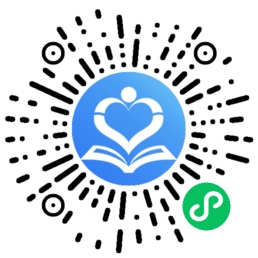中共党史专业介绍
中国共产党历史专业属于法学门类,政治学一级学科,该专业主要研究中国共产党的历史发展、理论政策与实践,探索中国共产党领导中国革命、建设、改革和党的建设的历史经验教训,揭示中国共产党执政规律、社会主义建设规律、人类社会发展规律。
英语单词分类 轻松记单词
train
英[treɪn] 美[treɪn]
"express trains don't stop at Princeton Junction"
"a string of islands"
"train of mourners"
"a train of thought"
"we were part of a caravan of almost a thousand camels"
"they joined the wagon train for safety"
"it led to a train of disasters"
"the bride's train was carried by her two young nephews"
"the fool got his tie caught in the geartrain"
"The old master is training world-class violinists"
"we develop the leaders for the future"
"She is training to be a teacher"
"He trained as a legal aid"
"Parents must discipline their children"
"Is this dog trained?"
"He is grooming his son to become his successor"
"The prince was prepared to become King one day"
"They trained him to be a warrior"
"Cultivate your musical taste"
"train your tastebuds"
"She is well schooled in poetry"
"Please don't aim at your little brother!"
"He trained his gun on the burglar"
"Don't train your camera on the women"
"Take a swipe at one's opponent"
"He is training our Olympic team"
"She is coaching the crew"
"She is training for the Olympics"
"train the vine"
"They railed from Rome to Venice"
"She trained to Hamburg"
"The toddler was trailing his pants"
"She trained her long scarf behind her"
名词用法(NOUN USES)
1.火车;列车
Atrain is a number of carriages, cars, or trucks which are all connected together and which are pulled by an engine along a railway. trains carry people and goods from one place to another.
e.g. Thetrain pulled into a station...
列车驶入了一个车站。
e.g. We can catch the early morningtrain...
我们能赶上凌晨的火车。
2.(缓慢行进中的)行列,队列
Atrain of vehicles, people, or animals is a long line of them travelling slowly in the same direction.
e.g. In the old days this used to be done with a baggagetrain of camels.
在过去,这往往由一队驮载行李的骆驼完成。
e.g. ...a longtrain of oil tankers.
一长队油轮
3.(想法、事件等的)(一)连串,(一)系列
Atrain of thought or atrain of events is a connected sequence, in which each thought or event seems to occur naturally or logically as a result of the previous one.
e.g. He lost histrain of thought for a moment, then recovered it...
他一时思维短路,然后又重新想了起来。
e.g. Giles set in motion atrain of events which would culminate in tragedy.
贾尔斯触发了随后的一系列事件,这些事件最终将以悲剧收场。
4.裙裾;拖裾
Thetrain of a woman's formal dress or wedding dress is the long part at the back of it which flows along the floor behind her.
5.在进行中
If a process or event isin train or has been setin train, it is happening or starting to happen.
e.g. In a moment the ceremony was intrain…
仪式马上就要开始了。
e.g. He praised the economic reforms set intrain by the government.
他称赞政府启动的经济改革。
6.(问题、困难等)随之而来
If something brings problems or difficultiesin itstrain, the problems or difficulties occur as a natural or logical result of it.
e.g. The cars have brought in theirtrain a host of other problems.
汽车随之带来其他一大堆问题。
动词用法(VERB USES)
1.(受)训练;(被)培训
If someonetrains youto do something, they teach you the skills that you need in order to do it. If youtrain to do something, you learn the skills that you need in order to do it.
e.g. The US was ready totrain its troops to participate...
美国准备训练军队参加。
e.g. Stavros was training to be a priest...
斯塔夫罗斯正受训成为一名牧师。
2.锻炼,培养(某一素质或能力)
Totrain a natural quality or talent that someone has, for example their voice or musical ability, means to help them to develop it.
e.g. I see my degree as something which willtrain my mind and improve my chances of getting a job...
我把学位视为可以锻炼心智、增加就业机会的东西。
e.g. Some children come to school with more finely trained perceptual skills than others.
一些孩子在入学时比其他孩子受过更好的感知技能培养。
3.(为体育活动)(使)进行训练(或锻炼)
If youtrain for a physical activity such as a race or if someonetrains youfor it, you prepare for it by doing particular physical exercises.
train的翻译
e.g. Strachan is training for the new season...
斯特罗恩正为新的赛季进行训练。
e.g. He has spent a year training crews for next month's round the world race.
他已花了一年时间为下个月的环球比赛训练队伍。
4.训练(兽或鸟)
If an animal or birdis trained to do particular things, it is taught to do them, for example in order to be able to work for someone or to be a good pet.
train
e.g. Sniffer dogs could be trained to track them down.
可以训练嗅探犬追捕他们。
e.g. ...a man who trained hundreds of dogs...
训练过数百只狗的人
5.把…对准(或瞄准)
If youtrain something such as a gun, a camera, or a lighton a person or thing, you aim it at them and keep it towards them.
train的近义词
e.g. She trained her binoculars on the horizon...
她将双筒望远镜对准地平线。
e.g. Police cameras had been specifically trained on that area.
警方摄像头已特别对准那一区域。
6.(经整枝)使(植物)朝特定方向生长
If youtrain a tree, bush, or plant in a particular direction, you tie it and cut it so that it grows in that direction.
e.g. Instead of training the shoots up the fence, lay them flat in both directions alongside it...
不要让嫩枝爬上篱笆,要令其沿着篱笆伏地向两边长。
e.g. You could even put a trellis on your walls andtrain plants to grow up it.
你甚至可以在墙上搭置棚架,让植物攀缘其上。
7. see also: training
相关词组:train up
The 6:30 train for Berlin has been canceled.
6点30分开往柏林的列车已经取消。
I lost my train by three minutes.
我迟了3分钟,没赶上火车。
I saw a camel train.
我看到了一队的骆驼。
The telephone rang and interrupted my train of thought.
电话铃响了,打断了我的思路。
The challenger has been training hard for the big fight.
这位健将为参加拳击大赛夺魁而进行坚苦的锻炼。
In the interest of our clients, we would train their technical staff at request.
从客户利益出发,我们会应客户要求培训他们的技术人员。
He trained his binoculars on the distant figures.
他把双筒望远镜对准远处的景物。
to get on'/off a train
上 / 下火车
I like travelling by train .
我喜欢乘火车旅行。
a passenger'/commuter'/goods'/freight train
客运 / 市郊通勤 / 货运列车
to catch'/take'/get the train to London
赶上 / 乘坐 / 搭乘开往伦敦的火车
a train journey'/driver
火车旅程 / 司机
You have to change trains at Reading.
你得在雷丁换乘火车。
a camel train
骆驼队
His death set in motion a train of events that led to the outbreak of war.
他的死引发了一系列的事件,从而导致了战争的爆发。
Unemployment brings great difficulties in its train.
失业带来了重重困难。
The train pulled into a station...
列车驶入了一个车站。
We can catch the early morning train...
我们能赶上凌晨的火车。
In the old days this used to be done with a baggage train of camels.
在过去,这往往由一队驮载行李的骆驼完成。
...a long train of oil tankers.
一长队油轮
He lost his train of thought for a moment, then recovered it...
他一时思维短路,然后又重新想了起来。
Giles set in motion a train of events which would culminate in tragedy.
贾尔斯触发了随后的一系列事件,这些事件最终将以悲剧收场。
In a moment the ceremony was in train'u2026
仪式马上就要开始了。
He praised the economic reforms set in train by the government.
他称赞政府启动的经济改革。
The cars have brought in their train a host of other problems.
汽车随之带来其他一大堆问题。
The US was ready to train its troops to participate...
美国准备训练军队参加。
Stavros was training to be a priest...
斯塔夫罗斯正受训成为一名牧师。
I see my degree as something which will train my mind and improve my chances of getting a job...
我把学位视为可以锻炼心智、增加就业机会的东西。
Some children come to school with more finely trained perceptual skills than others.
一些孩子在入学时比其他孩子受过更好的感知技能培养。
Strachan is training for the new season...
斯特罗恩正为新的赛季进行训练。
He has spent a year training crews for next month's round the world race.
他已花了一年时间为下个月的环球比赛训练队伍。
Sniffer dogs could be trained to track them down.
可以训练嗅探犬追捕他们。
...a man who trained hundreds of dogs...
训练过数百只狗的人
She trained her binoculars on the horizon...
她将双筒望远镜对准地平线。
Police cameras had been specifically trained on that area.
警方摄像头已特别对准那一区域。
Instead of training the shoots up the fence, lay them flat in both directions alongside it...
不要让嫩枝爬上篱笆,要令其沿着篱笆伏地向两边长。
You could even put a trellis on your walls and train plants to grow up it.
你甚至可以在墙上搭置棚架,让植物攀缘其上。
Jim has been training for the big race for weeks now.
几星期来,吉姆一直在为参加大赛而训练。
Our football team are training for the preliminary of the World Cup.
我们的足球队正在集训,准备参加世界杯预选赛。
He is training for the boat-race.
他正在为赛船训练。
train sb/oneself for sth/v-ingThey trained her for nursing.
他们培训她做护理工作。
They trained John for flying.
他们训练约翰开飞机。
I train myself for a race.
我正在为长跑赛而训练。
He was trained for gardening at the Agricultural College.
他在农业大学学园艺。
The shot trained off.
子弹打偏了。
He trained his binoculars on the distant figures.
他把双筒望远镜对准远处的景物。
The fireman trained their hoses on the burning building.
消防队员把水龙带对准燃烧的建筑物。
He trained his gun on the intruder.
他举枪瞄准入侵者。
The child was trained up in a good school.
这孩子曾在一所较好的学校里受过教育。
All the technical staff are trained up to a high level of efficiency.
受过训练的所有技术人员均具有高水平的工作效率。
The long train of her..gown swept the dead leaves off the steps.
出自:Baroness OrczyMacbeth By many of these trains hath sought to win me Into his power.
出自:Macbeth,ShakespeareTo train me to prison under false pretexts.
出自:Sir W. Scott交通
B:Does that mean you’re not (going to take/ taking/ going to ride/ riding) thetrain to work anymore?
这是否意味着你不再(坐火车/搭火车/乘坐火车/乘火车)去上班?
A:Sometimes.
有时候会这样。
交通
B:Let the people (off/ get off/ disembark from) thetrain before you get on.
让别人(先下/先下来/先下车)你再上去。
train
A:I see, that makes more sense, doesn’t it?
我知道。这样更合理,不是吗?
在地铁站
train
A:Good! There’s the information desk. How do we get to the 70 th Street, please?
您好!问讯处,请问我们怎样能到第70 街?
B:The Northern Line is what you want.
你们可以坐北线地铁。
A:How much is it?
票价多少?
B:It’s two yuan.
两元。
A:Which way do we go for the Northern Line?
我们怎样去北线地铁?
B:Just go through the No.8 ticket-barrier over there. Atrain will be in directly.
从8 号检票口往前走,车马上就进站。
A:I appreciate it. Thank you.
明白了。谢谢。
B:That’s all right.
不客气。
误 He goes to work by the train every day.
正 He goes to work by train every day.
你坐火车去,还是坐汽车去?误 Did you go by a train or by a car?
正 Did you go by train or by car?
析 by train表示“乘火车”,指交通方式, train前不能加the或a。
那位老人在开往北京的火车上。误 The old man went to Beijing in train.
正 The old man went to Beijing in a train.
析 如具体地指“坐着火车”, train前则须加介词a或the。
你应该在这个车站转车。误 You must change the train at this station.
正 You must change trains at this station.
析 表示“转(火)车”“换乘另一列(火)车”时要用train的复数形式。
The first traffic signals were used fortrains.
第一个交通信号用于火车。
2020杭州市卷
Can seniors in Western countries take thetrains for free?
西方国家的老年人可以免费乘坐火车吗?
2019齐齐哈尔市卷
When he is at the airport or on thetrain, he especially loves reading e-books.
在机场或火车上,他特别喜欢看电子书。
2018重庆市卷
Aftertraining for a period of time, the researchers tested the bees.
经过一段时间的训练,研究人员对蜜蜂进行了测试。
2018陕西省卷
I think that maybe your schools are better intraining for citizens.
我认为也许你们的学校在为公民提供培训方面做得更好。
2018山西省卷
The well-trained dog rushed like an arrow.
训练有素的狗像箭一样冲过来。
2018沈阳市卷
How can thetrain operators possibly justify yet another increase to rail passenger fares?
火车运营商如何证明再次提高铁路客运票价是合理的?
2021英语一
They had Chicagotrain commuters talk to their fellow passengers.
他们让芝加哥火车上的通勤者与其他乘者交谈。
2015英语二
Ways of reading on atrain or in bed are likely to differ considerably from reading in a seminar room.
在火车上或在床上阅读的方式可能与在研讨室阅读有很大不同。
2015英语一
Of course, it is not like you can take an unemployed waiter andtrain him to be a doctor in a few weeks.
当然,这并不是说你可以在几周内把一个失业的服务员训练成一名医生。
2021英语二
I've also experienced greater success in achieving my specific fitness goals, because I'mtraining according to those goals.
在实现我的特定健身目标方面,我也取得了更大的成功,因为我是根据这些目标进行训练的。
2019英语二
That conflicted with how I needed totrain to reach my goals.
这与我需要如何训练才能达到目标相冲突。
2019英语二
四川高考志愿填报方式:1、进入页面;2、修改密码;3、填报须知;4、查看个人基本信息;5、志愿类别选择;6、填写志愿和修改志愿;7、填写或修改志愿结束后,单击页面底部的[保存并提交]按钮,则所填写的志愿数据将得到保存,保存即表示该批次志愿已经提交。
高考成绩一般都会在考后15天左右公布,不过不同省份查询时间有所差别,具体以各省份发布时间为准。并且全国各省份高考成绩公布时间有所不同,不全在同一天,但绝大部分省市都集中在6月24日、6月25日两天公布高考成绩,有些省份会更早一点。
中国共产党历史专业属于法学门类,政治学一级学科,该专业主要研究中国共产党的历史发展、理论政策与实践,探索中国共产党领导中国革命、建设、改革和党的建设的历史经验教训,揭示中国共产党执政规律、社会主义建设规律、人类社会发展规律。
小学教育专业属于教育学门类、教育学一级学科,是我国教师教育体系的重要组成部分。小学教育专业坚持学高为师、身正为范。其主要培养德、智、体、美、劳全面发展,具备专业化的小学教师素养,能在小学及相关行业从事教育、教学和管理等方面工作的复合型人才。
钢琴伴奏作为一门中国普通高等学校的专科专业,属于文化艺术大类中的表演艺术类,修业年限为三年。该专业的目的是培养了解钢琴伴奏的基本理论知识和方法,具备较好的音乐创造能力,从事钢琴伴奏、艺术指导、钢琴演奏、教学辅导等工作的高素质技术技能人才。
影视多媒体技术专业是一门专科专业,属于新闻传播大类中的广播影视类。开设该专业的目的是培养全面发展,具有良好职业道德和人文素养,掌握影视多媒体技术基本知识和技能,具备影视后期制作、影视包装设计能力,从事影视编辑的高素质技术技能人才。
虚拟现实技术应用是一门互联网专业,属于电子与信息大类中的计算机类,基本修业年限为三年。专业主要研究仿真技术与三维计算机图形技术等方面基本知识和技能,具备虚拟现实软硬件平台设备搭建,从事虚拟现实、开发、调试等工作的高素质技术技能人才。
更多内容
关注微信小程序
学路英语小程序
 微信扫一扫,加入小程序
微信扫一扫,加入小程序
学路学习小程序
 微信扫一扫,加入小程序
微信扫一扫,加入小程序
学路高考小程序
 微信扫一扫,加入小程序
微信扫一扫,加入小程序
学路学习APP
 扫一扫,下载app
扫一扫,下载app